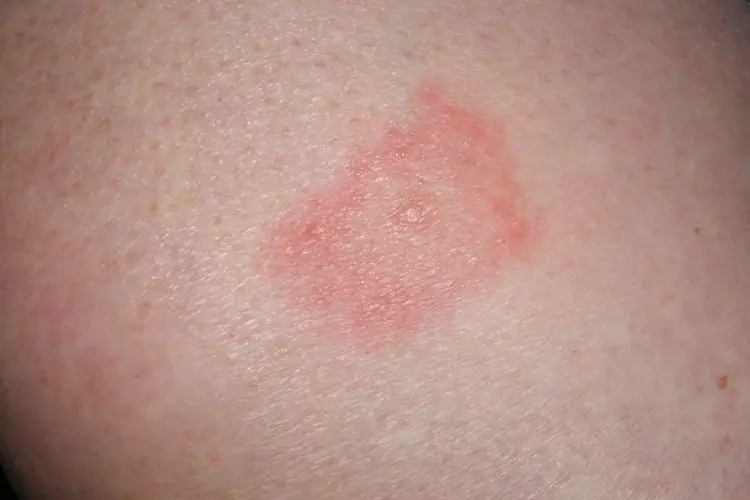Lyme disease is a debilitating condition that affects thousands of people every year. It is caused by the bacteria Borrelia burgdorferi, which is transmitted through the bite of infected black-legged ticks.
The standard treatment for Lyme disease is antibiotics, but many people are now turning to natural remedies to alleviate their symptoms and support their recovery.
In this guide, I will explore the various natural treatment options for Lyme disease and provide valuable insights into managing this condition.
Contents
Symptoms of Lyme Disease


Lyme disease can manifest in various ways, and its symptoms can be diverse and often mimic other conditions. It is crucial to be aware of the common symptoms associated with Lyme disease to ensure early detection and proper treatment. Some of the typical symptoms include:
- Fatigue
- Joint and muscle pain
- Headaches
- Fever and chills
- Swollen lymph nodes
- Rash
If you experience any of these symptoms, especially after spending time outdoors in areas where ticks are prevalent, it is essential to seek medical attention and get tested for Lyme disease.
Why Natural Treatment is the Best Approach
While antibiotics are the primary treatment for Lyme disease, natural remedies can play a key role in supporting recovery and alleviating symptoms.
Natural treatment options are generally considered safer and have fewer side effects compared to antibiotics. Additionally, natural remedies can help strengthen the immune system and address underlying issues that contribute to the persistence of symptoms.
By adopting a holistic approach, individuals with Lyme disease can experience improved overall health and well-being.
Effective Herbal Remedies for Lyme Disease
Herbal remedies have been used for centuries to treat various ailments, including Lyme disease. Here are some of the most effective herbal remedies for Lyme disease:
- Andrographis
- Cat’s Claw
- Japanese Knotweed
- Garlic
- Teasel Root
These herbs possess antimicrobial and anti-inflammatory properties that can help combat the Lyme bacteria and reduce inflammation in the body. It is important to consult with a qualified herbalist or healthcare provider before incorporating these herbs into your treatment regimen.
Dietary Changes to Support Lyme Disease Recovery
Optimizing your diet can significantly support your body’s healing process and boost your immune system.
Here are some dietary changes that can help in the recovery from Lyme disease:
- Increase consumption of fresh fruits and vegetables
- Incorporate anti-inflammatory foods like turmeric and ginger
- Include lean protein sources such as fish and poultry
- Avoid processed foods and refined sugars
- Stay hydrated by drinking plenty of water
By nourishing your body with nutrient-dense foods, you can enhance your overall well-being and support your body’s ability to fight off infections.
The Role of Exercise in Lyme Disease Treatment
Engaging in regular exercise can be highly beneficial for individuals with Lyme disease. While it is essential to listen to your body and avoid overexertion, gentle exercise can help improve circulation, enhance mood, and boost energy levels.
Here are a few exercise options suitable for Lyme disease patients:
- Yoga
- Walking
- Swimming
- Tai Chi
- Pilates
Always start slowly and gradually increase the intensity and duration of your workouts. It is advisable to consult with a healthcare professional or a physical therapist to create an exercise plan tailored to your specific needs.
Holistic Approach
Managing Lyme disease requires a comprehensive approach that addresses not only the physical symptoms but also the emotional and mental well-being.
Here are some holistic approaches that can be beneficial:
- Meditation and mindfulness
- Acupuncture
- Massage therapy
- Chiropractic care
- Stress management techniques
These holistic therapies can help reduce stress, promote relaxation, and support overall healing. It is essential to work with qualified practitioners who have experience in treating Lyme disease patients.
FAQs
Can natural remedies completely cure Lyme disease?
Natural remedies can support the healing process and alleviate symptoms, but they may not completely cure Lyme disease. It is essential to work with a healthcare professional to develop a comprehensive treatment plan.
Are there any dietary restrictions for Lyme disease patients?
While there are no specific dietary restrictions for Lyme disease patients, it is advisable to avoid foods that may trigger inflammation, such as processed foods and refined sugars.
Can exercise worsen Lyme disease symptoms?
Intense or excessive exercise can potentially worsen Lyme disease symptoms. It is crucial to listen to your body and engage in low-impact exercises that do not overexert you.
Are herbal remedies safe for everyone with Lyme disease?
Herbal remedies may interact with certain medications or have contraindications for individuals with specific health conditions. It is vital to consult with a qualified healthcare provider before incorporating herbal remedies into your treatment regimen.
Expert Advice
Consulting with a naturopathic doctor, herbalist, or Lyme-literate healthcare practitioner can help you develop a personalized treatment plan that suits your specific needs. Additionally, joining support groups or online communities of individuals with Lyme disease can provide emotional support and a platform to share experiences and knowledge.
